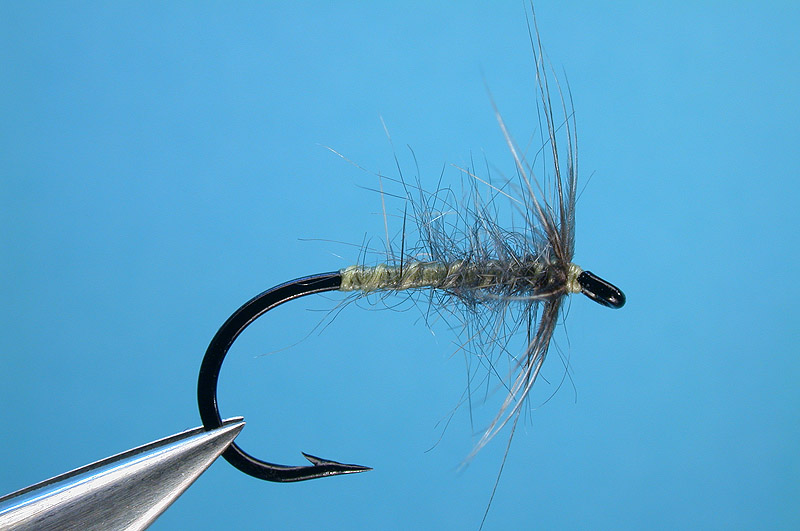
Waterhen Bloa
Hook: Sprite Perfect International #14
Thread: Pearsall's Gossamer, yellow
Hackle: Hen, dyed dark brownish-dun
Body: Tying silk
Rib: Split silk, waterrat inserted, twisted
Cheers,
Hans W
Moderators: William Anderson, letumgo

That may be the next iteration on this journeyThe hackle is not much like waterhen though.
The dubbing I received does also include some guard hair, but the chestnut tips are not very pronounced. I may incorporate just a tiny bit of chestnut dyed mole next time round...Indeed, even the waterrat fur looks a bit "grey" here, the original has chestnut brown tips, ( which this may also have, but it can be difficult to see in photos ) unless only underfur is used.